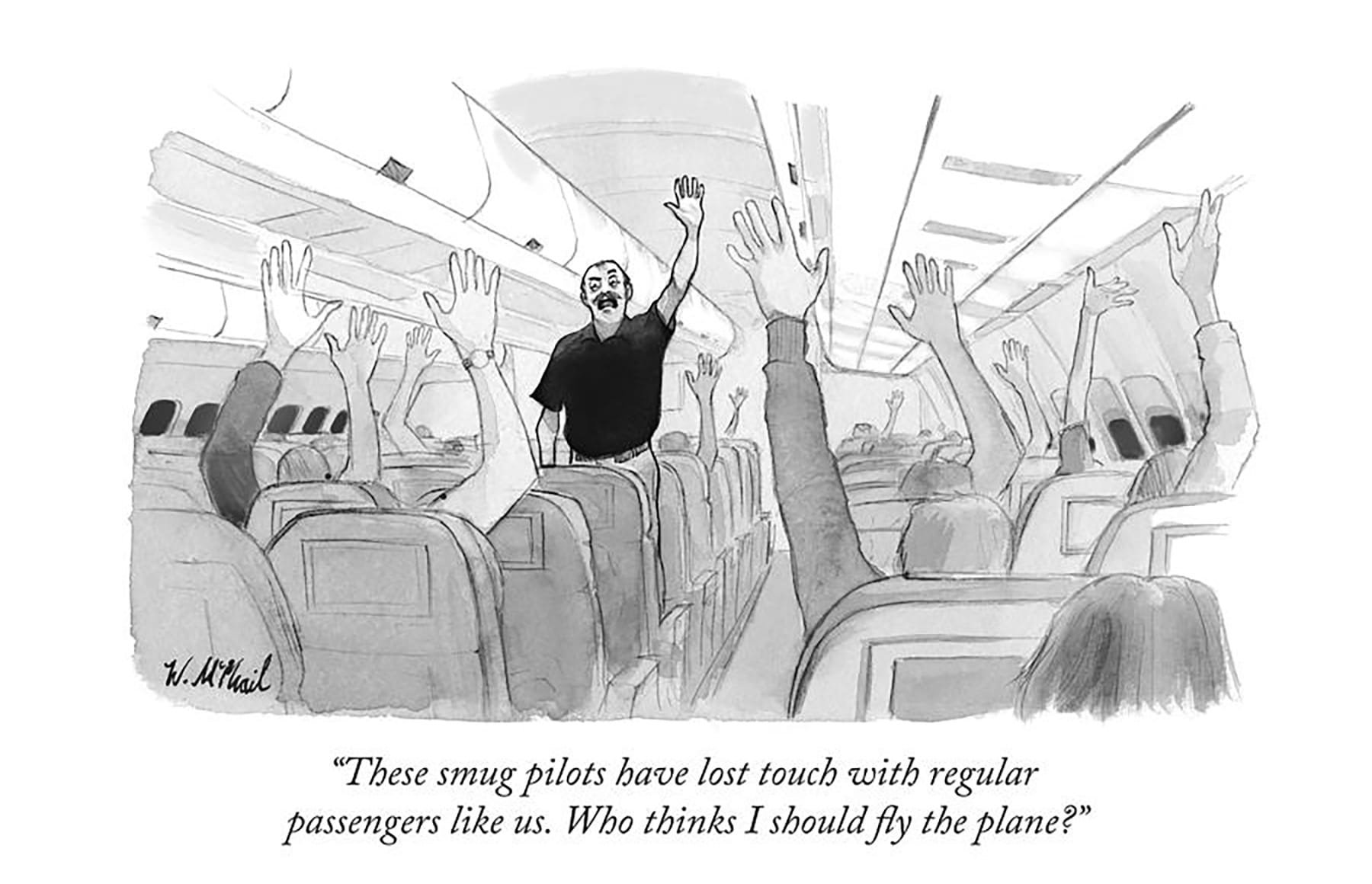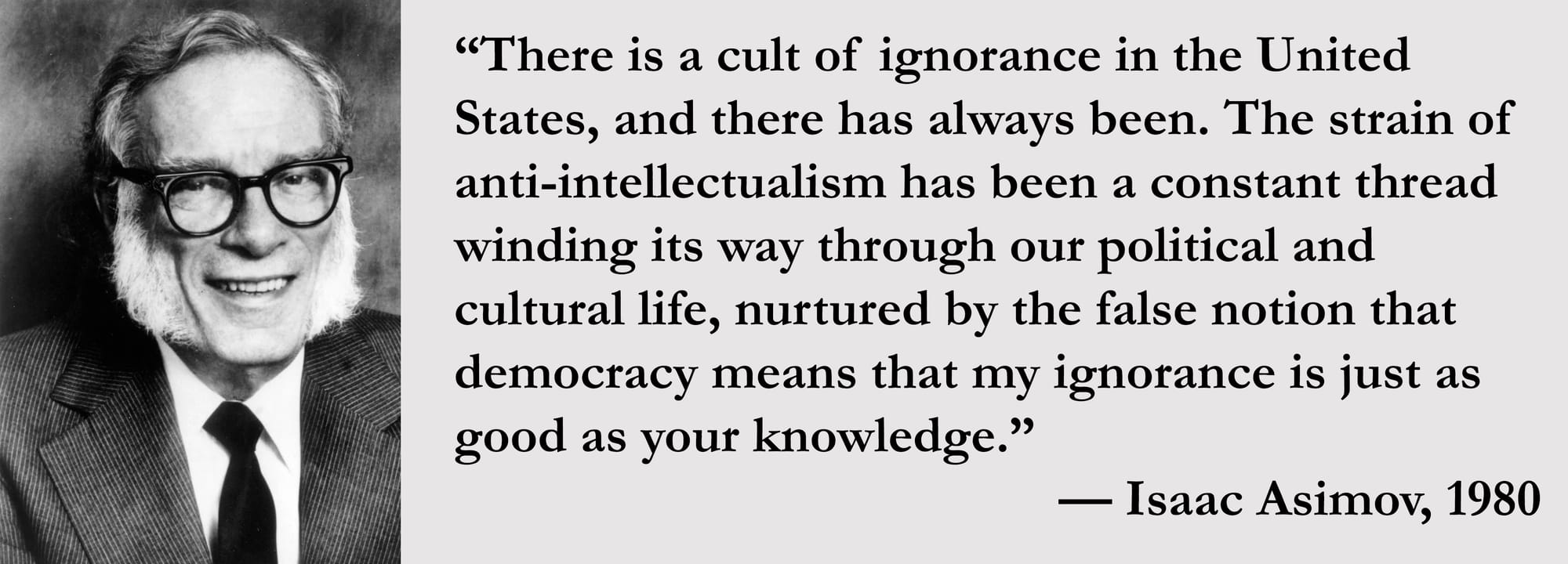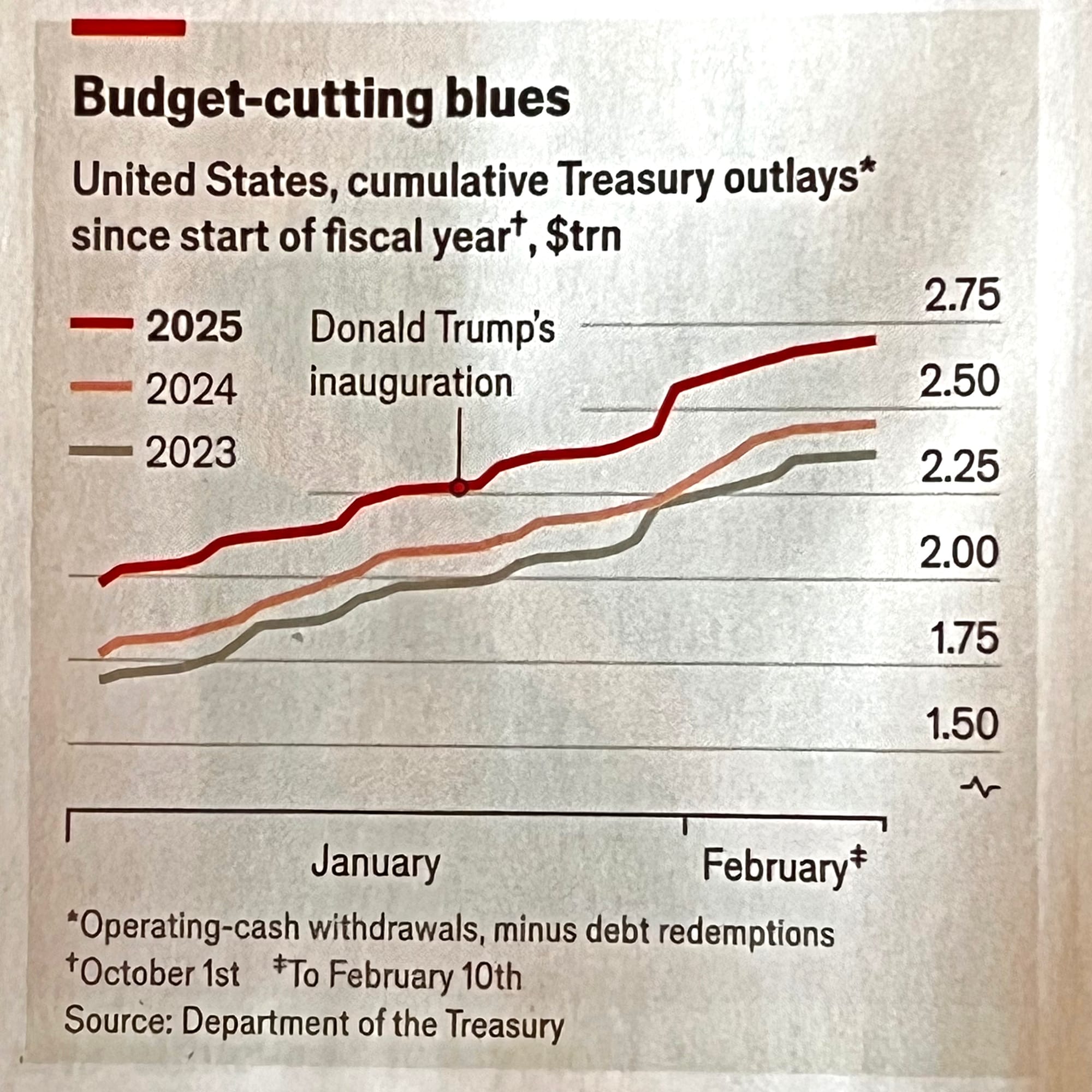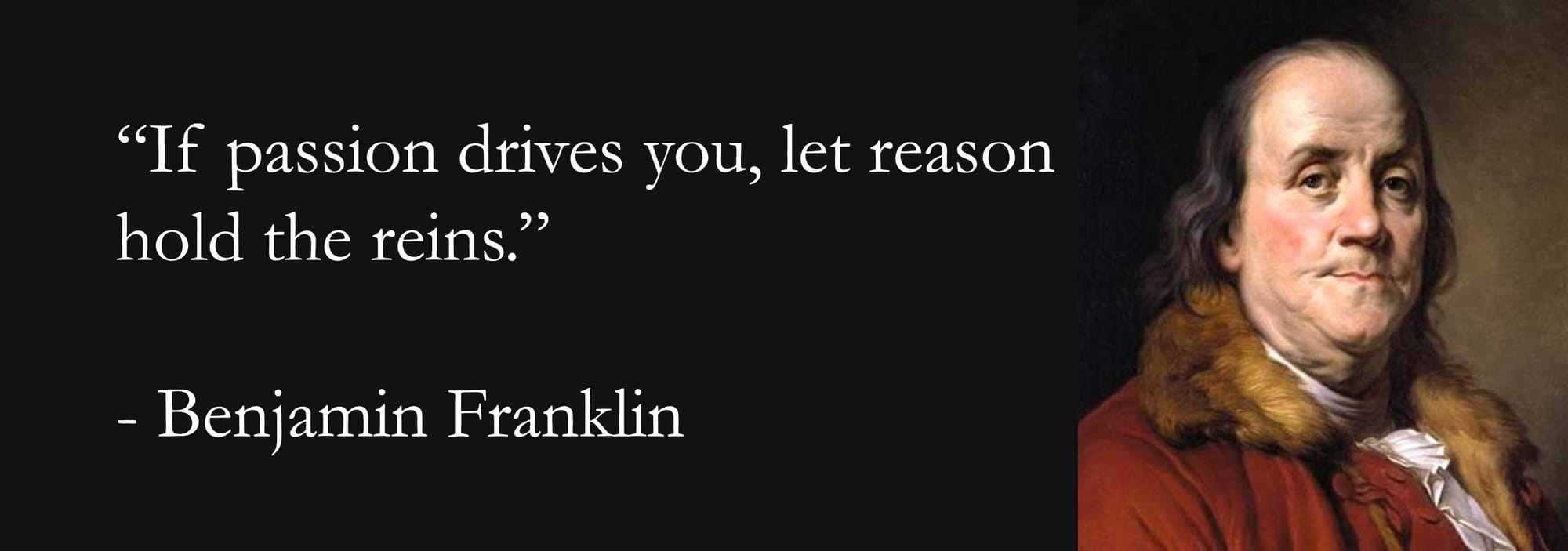Uniquely Stupid Times

Two years ago, social psychologist Jonathan Haidt wrote an article in The Atlantic entitled "Why the Past 10 Years of American Life have been Uniquely Stupid – It's not just a phase." In it, he noted that "something changed in the social universe in the early 2010s, and everything got weird and stupid after that." Haidt's thesis was that social media had made it easier than ever for radical elements at both ends of the political spectrum to attack moderates who are critical of extreme positions, and "when critics go silent and we start shooting the moderates, the group gets stupid."
In the two years since that article was published, the trends Haidt identified have only accelerated, through the contentious 2024 Presidential election and into Donald J. Trump's second term.

I grew up in a United States that took pride in its scientific accomplishments, from finding a cure for polio to putting a man on the moon. But today I find myself in a country where scientists are being fired for insufficient fealty to a particular political dogma, and the President has recently advocated for the abolishment of the Department of Education. How did we get here?
Everyone's an Expert
In 1982, Jerry Pournelle predicted in his "Computing at Chaos Manor" column in BYTE Magazine that computers would become so powerful and so interconnected that by the year 2005 the average person would be able to find the answer to any question without leaving their home. 2005 may have been slightly over-optimistic, but we've definitely reached that point now, with internet-connected smartphones in nearly everyone's hand, pocket, or purse.
One thing that Pournelle and other prognosticators didn't see clearly, though, was that this capability wouldn't necessarily make us smarter. In fact, for many people, this capability actually makes them dumber. Those who might have said in 1982 "well, I don't really know much about that topic so can't comment" are now able to quickly do a search or consult their favorite AI tool, and then confidently hold court on the expertise they've acquired in a matter of seconds. "Here's what the experts don't understand about this topic" is a common refrain among those who've Googled a topic for a few minutes, and the folks who fancied themselves experts on securing email servers in 2016 became experts on immunology in 2020, and in recent months they've been showing off their expertise in everything from safety in commercial aviation to balancing the federal budget.
The problem isn't just that people are merely uneducated on the topics they think they know. Here in the United States, where we allow people to spread lies on social media platforms, many people believe things that are patently untrue. For example, many US citizens believe that violent crime is heading up and the economy is heading down, simply because others have told them to believe these things.


Once a society decides that everyone can be an instant expert, there is no longer a need to put true experts in decision-making positions. You can end up with a failed businessman and reality TV show star as President, a science denying former cokehead and heroin addict as Director of Health and Human Services, a hard-drinking wife-beating sexual predator as Secretary of Defense, a former wrestling entertainer running the Department of Education, and a longtime Russian asset and apologist as Director of National Security.
Dealing with Disinformation
At the core of the unique stupidity of the United States these days is our love affair with disinformation: false information that is intended to mislead. From pizzagate to condoms for Hamas and 150 year-old Social Security recipients, Americans love a good lie, especially one that makes them feel morally superior to others.

Before the advent of written language, disinformation was only spread verbally, which limited its reach. Then printed language came along, but there's a self-regulating nature to disinformation in print, because many of the people gullible enough to believe and repeat lies don't (or can't) read.
Then came electronic communication technologies, from the radio and telephone to the internet and beyond. These tools can reach the rubes regardless of their reluctance to read, and lawmakers have been trying to limit the fallout ever since Alexander Graham Bell's first phone call to his assistant Thomas Watson. (It's interesting to note that after inventing the telephone Bell never had one in his own home, because he felt it would distract him from his scientific studies.)
The Communications Act of 1934 created the Federal Communications Commission (FCC) and made this new agency responsible for regulation of emerging electronic communications technologies such as telephone and radio. The goal was to have consistent policies and public access across all the states, in much the same way that railroads and interstate commerce were already regulated. And as communications technology has evolved in the years since, the FCC and Communications Act of 1934 have evolved with it.
For example, in the 1950s, an FCC investigation found that certain television quiz shows were misleading the public by having scripted outcomes, with selected contestants being secretly provided with answers ahead of time. After much outrage from TV viewers, Congress amended the Communications Act of 1934 to prohibit networks from prearranging the outcome of quiz shows.
After the rise of the internet, it became clear that in the event of a national emergency the internet itself might become weaponized, either as a tool for spreading disinformation or as a conduit for cyberattacks on critical infrastructure. The perceived need for an "internet kill switch" and the ensuing Congressional discussions led to broad bipartisan support for passage of the Protecting Cyberspace as a National Asset Act.
Legalizing Lying: Section 230
The Communications Act of 1934 got a long-overdue overhaul with passage of the Telecommunications Act of 1996, which attempted to address the new challenges created by over 60 years of technological progress. This was a complex piece of legislation that touched many areas, and a report by the House of Representatives summarized the goal of the new legislation as being to "provide for a pro-competitive, de-regulatory national policy framework designed to accelerate rapidly private sector deployment of advanced information technologies and services to all Americans by opening all telecommunications markets to competition."
There is much debate about whether these goals have been achieved, but the aspect of the Telecommunications Act of 1996 that is most relevant to our current epidemic of stupidity is Section 230 of the Communications Decency Act of 1996, which is Title V of the Telecommunications Act of 1996. That's a mouthful, and Section 230 is full of messy jargon, but this is the sentence from Section 230 that clearly states how it enabled the rise of social media, the dark web, online harassment, and numerous other ills of the digital age:
No provider or user of an interactive computer service shall be treated as the publisher or speaker of any information provided by another information content provider.
In other words, an online platform such as Facebook or Twitter has no liability for whether the content on its platform is true or false, safe or dangerous, provided in good faith, or intended to deceive. This is what enables the world's wealthiest man to post lies such as his claim that $50 million of US taxpayer money had been spent on condoms for Hamas, or that millions of dead people are collecting Social Security payments, and then after those lies have been propagated by his sycophants to millions of people worldwide, he can simply shrug it off as "some of the things I say will be incorrect."
Many countries don't allow liability-free distribution of this type of irresponsible disinformation. Germany, for example, has strict laws against hate speech and the posting or reposting of lies online, and repeat offenders can go to jail. More broadly, the European Union regulates social media through the Digital Services Act (DSA), which went into effect in 2024. As stated in the overview of the DSA, "Its main goal is to prevent illegal and harmful activities online and the spread of disinformation. It ensures user safety, protects fundamental rights, and creates a fair and open online platform environment."
In the United States, however, we're headed in the opposite direction. Budgets for regulatory agencies are being slashed, inspectors general are being fired en masse, and permanent tax cuts for the wealthy will likely assure that we'll never again be able to afford the sorts of protections that more civilized nations provide for their citizens.
These sorts of changes seem destined to lead us toward the Latin American version of democracy: fewer science-based knowledge-gathering institutions, corrupt elections, fewer government services for the poor and disabled, and more political strife and violence. And millions of Americans are cheering the changes.
Outrage Addiction
Long go, I attended a party where a few people had dropped LSD. LSD, like stupidity, makes it hard to follow what's going on around you, and different people have different reactions to that sensation. At that party, there was a young woman sitting quietly in the corner who became absolutely convinced that everyone in the room was aware of the fact that she was tripping on acid, and she suddenly blurted out "I KNOW YOU'RE ALL THINKING ABOUT ME, STOP IT!" After that, of course, everyone was indeed thinking about her.
I think of that poor girl often when I see people ranting on social medial about things that upset them. If you're struggling to follow the thread, it's easy to become convinced that there's some sort of big conspiracy going on, with key facts being hidden from you, rather than just accepting the fact that you don't understand the big picture. As French novelist Gustave Flaubert put it, "stupidity consists in wanting to reach conclusions."
Because so many Americans are so bad at basic arithmetic, you can baffle them with big numbers and get them so angry they're foaming at the mouth about problems that don't exist, and things they don't understand. A new quasi-governmental agency called DOGE uses Twitter for this every day, with great success. They use Twitter, of course, because its Section 230 protection allows the spreading of lies. You'll never see DOGE employees testifying under oath before Congress or pressing charges in a court of law, because you can go to jail for lying in those contexts. They stick to Twitter, where lying is legal.

Big numbers are great for generating outrage among stupid people, who have no comprehension of relative magnitude of numbers. In the DOG tweet example above, consider it would read if all of the numbers were divided by a million, to make them easier to understand while maintaining their relative magnitude: "Schools have spent nearly $200K of COVID-Relief funds with little oversight or impact on students. 39.3 cents to rent out a Major League baseball stadium, 8.6 cents in Caesars Palace hotel rooms, 6 cents in swimming pool passes, and even an ice cream truck." In other words, in a budget of $200,000, they could only found about 50 cents of spending they don't agree with. And they're OUTRAGED!
Funnier still is the way these findings get presented as if they were "fraud." Fraud is defined as "wrongful or criminal deception intended to result in financial or personal gain." It's a crime, and people who commit fraud often end up in jail. But DOGE has never filed fraud charges against anyone. Just as DOGE has no forensic accountants on staff with expertise in identifying fraud, they have no lawyers on staff with expertise in prosecuting crimes – DOGE is an entertaining distraction, and nothing more.
Speaking of DOGE, it's interesting to look at how it's doing after its first month of operation. According to a report released last year by the Congressional Budget Office (CBO), the cost of extending the Trump tax cuts for individuals making over $400K per year (as his current budget proposal does) would be $4.6 trillion over the next 10 years. And according to the DOGE website, as of this week they've found $55 billion in savings. Many people dispute that number, but let's take them at their word. Here's a chart that shows how these two numbers compare.

As a final note on DOGE's efficacy to date, here's a chart from the 2/15/2025 issue of The Economist, based on publicly available data from the Department of the Treasury, which shows the trend in cumulative spending during the first 6 weeks of the year for each of the last three years:

Avoiding Anti-Intellectualism
I guess it's clear that I agree with Jonathan Haidt's view that we're living in uniquely stupid times. But on a I'll end this rambling post on a more upbeat note, with a few examples of people I admire for their ability to rise above the fray and take a dispassionate long-term view of complex issues. Such people still exist, and are worth listening to.

If you're interested in developing a better understanding of the numbers that drive the US federal government, Steve Ballmer's USAFacts.org is a wonderful resource. Ballmer launched USAFacts after he retired from Microsoft, with a goal of helping educate the American public by making the facts of federal government policy and spending activities more easily available. The USAFacts YouTube channel has videos on everything from the economy and healthcare to immigration and energy use, and Ballmer does a consistently good job of keeping his personal feelings out of things and just presenting the facts.
Ukraine has been in the news a lot lately, and there are countless cringe-inducing opinions on social media, from stupid people on all sides of the issues. But whereas most of those people have spent a few minutes or less of their entire lives studying the underlying issues, there are true experts that you can learn from if you seek them out. Sir Alex Younger, for example, the former head of the UK's MI6 intelligence service, has decades of experience in dealing with Russia, Ukraine, the US, and other world powers, in public and behind the scenes.
A recent BBC interview with Sir Alex Younger in which he discusses his view of what's going on in Ukraine. Note the utter lack of emotion in his delivery - just the facts, and his well-informed opinions.
Another topic that has been in the news a lot lately is Presidential executive orders. Public figures at both ends of the political spectrum have reacted to these documents, which are simply memos from the President to employees of the Executive Branch, as if they had some sort of magical power. They don't. Congress still makes the laws, the Judicial Branch still interprets the laws, and Executive Orders have no legal meaning for anyone who isn't an employee of the Executive Branch of the US federal government. If you're interested in the actual facts of how executive orders work, Lisa Rubin's recent interview with Deborah Pearlstein, the Director of Princeton's Program in Law and Public Policy, is a good place to start. Note Pearlstein's lack of emotion, same as Ballmer and Younger - that's how true experts talk within their areas of expertise.
The internet has brought humanity together in ways nobody ever anticipated. Unfortunately, for many people the internet has become a place where you can find things to be outraged about, a place where you can study the words and actions of stupid and unethical people and then complain about them. But it doesn't have to be that way. You can also use the internet to learn from the best and brightest among us, if that's what you'd like to do.
Speaking of, I just noticed that Paul Sellers has a new video out today. Time to pour a cup of coffee and learn something new!